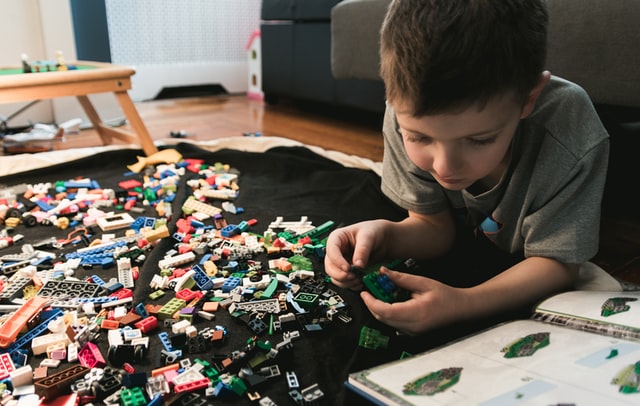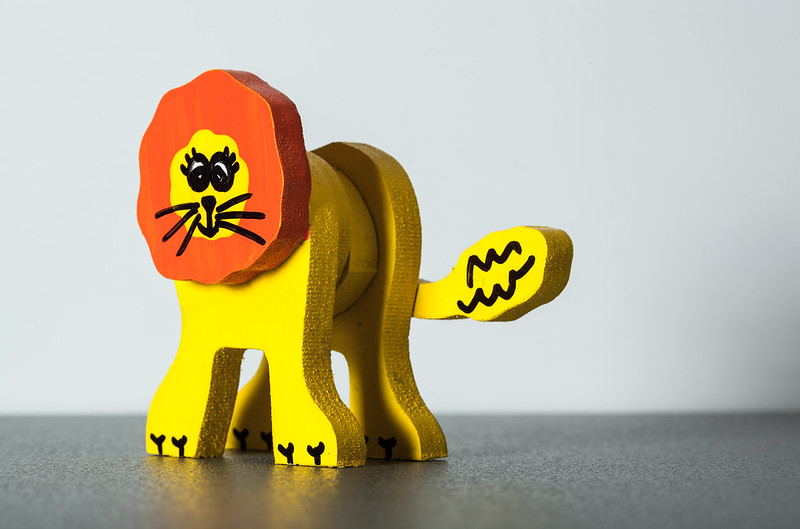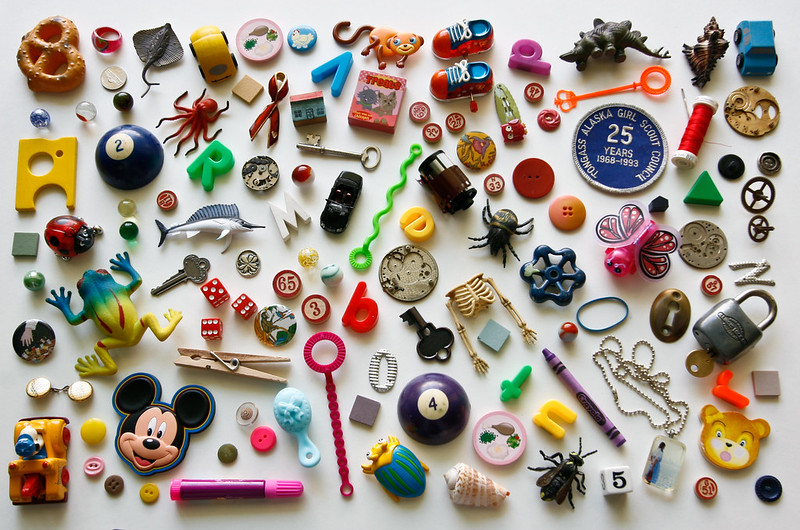Super Fun & Educational (Guessing Games) for Kids in 2023
Mục lục bài viết
Super Fun and Educational Guessing Games for Kids
Guessing games are one of the perfect ways to keep your kids occupied when you need a little time to yourself. They help make sure that your kids are entertained while also helping their brains stay engaged. Guessing games have the power to help kids learn about grammar and spelling while also practicing analytical and critical thinking.
The best part about guessing games is that they are pretty customizable. You can use them for various subjects like math, English, and even history. All you need to do is swap out certain parts of a game, and you’re all set to keep your kids guessing.
In this article, we’re going to walk you through the benefits of guessing games, followed by a list of games and how they are played.
Let’s take a closer look.
Benefits of Guessing Games for Kids

Using guessing games is not a new learning or teaching technique. Teachers have been using these games to help their students improve their knowledge in various ways. These games also help them stay engaged and interested in the subjects or topics taught.
Here is a quick list of the benefits that guessing games offer students:
They encourage kids to stay motivated
Playing guessing games in the classroom or at home can help kids become motivated when it comes to learning. Many guessing games offer large groups of children the chance to participate and wait for their turn to play. It also helps increase motivation and encourages kids to stay engaged and interested in the game.
Guessing games improve vocabulary

An extensive vocabulary is always an excellent benefit, no matter what subject a kid is taught. Guessing games offer kids the opportunity to associate words with their visual representations or meanings while also learning how to recall newly introduced information.
They help kids improve their language and speaking skills
Another reason that using guessing games as a learning tool for young children is that they help kids improve their language and speaking skills. Since most guessing games are often played verbally, they offer children the chance to listen to how words are pronounced and repeat them to the teacher. If a kid is learning a new language, a guessing game helps them expand their vocabulary!
Guessing games can help build teamwork and boost self-esteem

Guessing games can help young kids learn how to work in a team and wait their turn to answer questions. It also encourages their fellow team members to answer correctly, which can help boost a child’s self-esteem. These games also offer students the chance to learn patience when a team member struggles to recall the correct answer.
They allow kids to learn from their mistakes
A guessing game can also help a child learn from their mistakes faster. If a child sees a red mark on a worksheet that indicates the wrong answer, they might feel discouraged and sad about not knowing the correct answer. On the other hand, if a child guesses incorrectly during a game, they might have visual or auditory cues that help them guess the right answer. In turn, they will learn from their mistakes faster!
Guessing Games for Kids
Now, let’s take a closer look at different guessing games for young kids.
Guess the Animal

Guess the Animal is the perfect game to play with kids under six. The premise of the game is simple. You need to make a list of animals and then describe it to some kids who must correctly guess what the animal is.
If you have a kid who prefers visual learning, then you could take this game to the next level and print out a set of pictures of different animals. You can then ask your kid to describe the animal they see instead of only telling them what the animal is. Guess the Animal helps kids improve their vocabulary and speaking skills.
I Spy

I Spy is another popular guessing game that allows kids to simultaneously practice their speaking skills and improve their vocabulary! To play I Spy, all you need to do is focus on an object inside the room you’re in and describe the thing to the kid using as many context clues as possible. If you’re playing this game with older kids, you could look in the opposite direction of the object to make the guessing process a little more challenging. Additionally, if you want to make the game more fun in a classroom, you could divide the kids into teams and keep score over which team guesses more words.
Hangman
Hangman is a fun word guessing game that teaches students how to spell new words. All you need is a blackboard and chalk, or a sheet of paper and a pen. You need to think of a word and draw out a series of underscores with the number of letters in the word.
You could include the vowels in the word to make guessing easier. You could also fill in the first and last letters of the word and ask the kids to guess the remaining letters. The student must draw a body part on the guillotine for every wrong letter. If the entire spelling of the word is incorrect, the student hangs the man, but if their answer is correct, they win a point. You could divide the words into categories, like animals, movies, or plants, to make the game more interesting.
Guess the Picture
Guess the Picture is Pictionary. To play this game, you will need to divide the kids into two teams, and you’ll need paper, pencils, and a timer. You’ll also need some cards with words on them. Each group must choose a person to draw out the word on the card, and the team members must guess what the word is within the allotted time. If the team doesn’t guess the word, the opposite team gets the point.
Guess the Mystery Object
Guess the Mystery Object is perfect for kids under five because it helps kids learn about sensory perception. You will need a cardboard box and a textured or uniquely-shaped object. Place the object inside the box and ask the child to guess what it is based on what it weighs, how it sounds, or even what it smells like. In another variation of the game, you could ask the child to look away from the box and place their hand inside. They must try to guess what the object is based on how it feels. This game allows kids to explore sensory play while also learning how to describe things.
What/Who Am I?
This game is similar to Guess the Animal. Still, the only difference is that they must guess who a person or object is instead of an animal. You could divide the game into categories. These could include historical figures or events, geography, or words from a novel that your child or students are reading in class. This game is a beautiful way for students to practice their speaking skills while learning new words.
Guess My Job
Guess My Job is perfect for elementary school students learning about different professions. All you need to do is make a list of jobs and give one job to every child. That child must describe the job on their piece of paper, and the other kids must try and guess what job is being described. This game offers students the chance to learn various new things: spelling, vocabulary, and speech. If you would like to make this game more interesting, you could ask your students to prepare small presentations in advance, then ask them to present a job to the class. In this way, you’re playing a guessing game and encouraging your students to practice public speaking.
Rhyming Riddles
Rhyming Riddles is just another way to get your students to solve some brain teasers! They promote critical and analytical thinking. They give your students the chance to learn how to apply logic and reasoning to funny situations. If a riddle has rhyming words, it also offers students the opportunity to learn about poetry and how language is used in writing. We would recommend this guessing game to learners who are in elementary and middle school.
Charades
Charades are a fun way to break from ordinary life and allow kids to have fun. All you need to do is divide the kids into two groups and write down the names of movies, songs, television shows, or books on slips of paper. Each team must select a slip and act out the word. Their team must guess the word in the allotted time; they will win points if they guess correctly and no points if they don’t. While this game might not be as intellectually stimulating as some of the other options on our list, we would recommend playing it every so often with children. It’s a fun way to blow off steam.
Eye Witness
The game’s premise is quite simple, especially if you’re playing with a large group of children. Pick one kid to go first, and ask the group to pay close attention to their appearance, from the kid’s hairstyle to what they’re wearing. Next, ask the chosen child to leave the room and change one element of their appearance. Ask them to ensure that the change made is subtle so that the rest of the group has difficulty figuring out the difference. This game allows kids the chance to practice their observation and description skills. If you’re playing this game with a massive group of kids, you could divide them into teams. The team with the largest number of correct guesses wins the game!
Heads Up 7-Up
Heads-up seven-up is a fun game to play at the end of a long school day! To play this game, you will need to choose seven kids to stand in at the front of the room. Once you’ve chosen them, ask the rest of the class to put their heads down. The seven selected students must walk around the class, and each of the seven must tap one other person. The person who gets tapped must give the seven students a thumbs-up without raising their heads. Once all the seven have been chosen, the seven people who were chosen first must yell, “heads up seven up!” Next, the students who got tapped in the class must guess which person tapped them. If they guess correctly, they get to be a part of the new group of seven people.
Draw Something

This game is exactly the same as Guess the Picture, but the only difference is that you play it only with one person. If you want your kid or your students to learn about how to work in pairs, then we’d recommend that you play this game with them. All you need is a blank sheet of paper, a pencil, and a list of words. One person draws something, and then the other person guesses what was drawn.
Button, Button, Who’s Got The Button?
This is another wonderful guessing game! All you need to do is give one person a button or any other tiny object that you can easily hide in your hand. The kid that has the button must go around and hold hands with all the other kids in the room. The twist is that at some point, the button must be transferred from one kid to another without everyone finding out who has the button. Once you’re satisfied that everyone has had a chance to hold the button, the rest of the group must figure out who has the button.
Conclusion
In this article, we took you through a list of 13 guessing games for children. Most of the games on our list aim at tricking kids into learning by having fun, but we made sure to include a few games that allow children to have some fun. We love the games that we’ve mentioned on our list because they provide children with the chance to use their brains while enjoying themselves. Don’t forget to come back to this list every time you need a new game to play!











